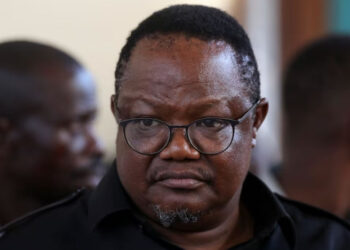Assets and funds worth more than $400m (about N152 billion) have been stolen Nigeria and stashed in the United Arab Emirates.
This was made known by the Chairman of Human and Environmental Development Agenda, Olanrewaju Suraju at the public presentation of a report titled, ‘Fixing Illicit Financial Flows: A Critical Review of UK and UAE Policies, Laws and Practices in Financial and Non-Financial Institutions.’
According to him out of the 800 assets uncovered by investigators, 216 assets were linked to 13 top security officials, while the remaining 584 have been traced to public officials.
Mr Suraju explained that the report was borne out of the need to review some of what they considered as loopholes in the laws and policies governing the financial and the non-financial system in the UK and the UAE and especially the concern over the rate at which illicit property and funds flowed from Nigeria to the UK and UAE.
He noted that the illicit financial outflows from Nigeria have continued to hurt the vulnerable poor, fuel violence and constitute threats to moral authority of the Nigerian state.
While noting that Nigeria lost about $178 billion in illicit financial flow between 2004 and 2013, Mr Suraju said it means the country is losing $17.8 billion annually to illicit financial flow.
“So, the illicit financial flow does not just disappear; it goes to certain jurisdictions and the point is that UAE and UK are being shown to have a huge percentage of these funds. It is only natural that we review what is responsible, not just that we have politically exposed persons, even law enforcement officials are attracted to these jurisdictions.
“It is also something clear that the system there permits the flow of the illicit funds. We’ve painstakingly over the period of two years reviewed these laws and policies to see how it is possible for just 13 law enforcement officers in Nigeria to have about 216 property in the UAE,” he said.
Suraju said the UAE and the United Kingdom had been facing attacks for failing to live up to international obligations in curbing illicit financial flow, mainly perpetrated by politically exposed persons.
HEDA further noted that “Politically-exposed persons are not just politicians but also their families while enablers of illicit financial flow include dealers in precious minerals, professionals who enhance and sustain illicit financial flows. Nigeria should progressively review her international obligations like the UN Conventions on Corruption which has five focal points which included international cooperation, technical assistance, asset recovery and the mutual legal assistance.”
Speaking at the summit, the Deputy Country Director, Open Society Initiative for West Africa, Dayo Olaide said while transparent elections remained a momentous step towards probity and good governance, it was disturbing that public enthusiasm towards election was fading.


































